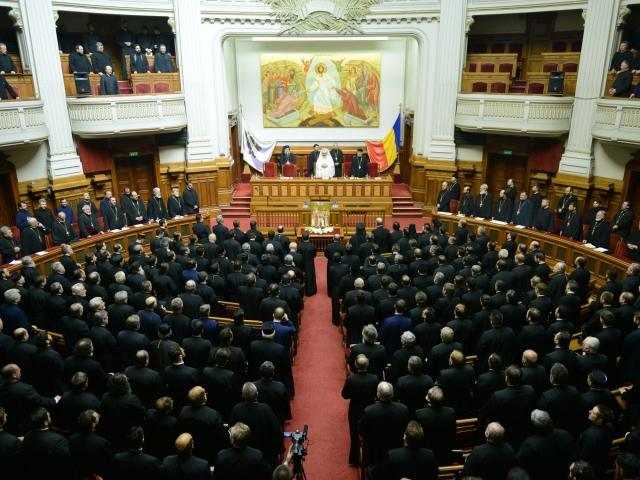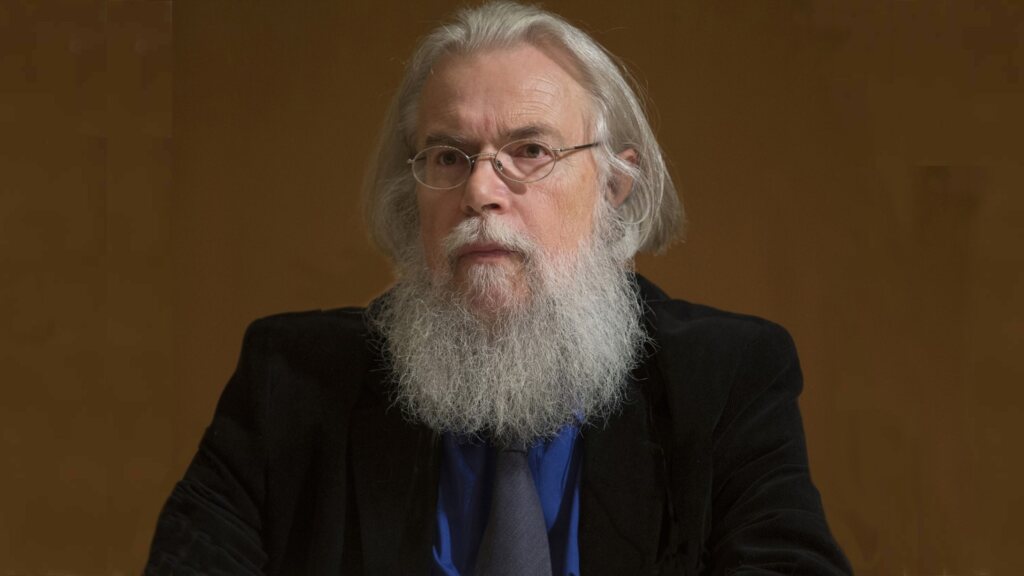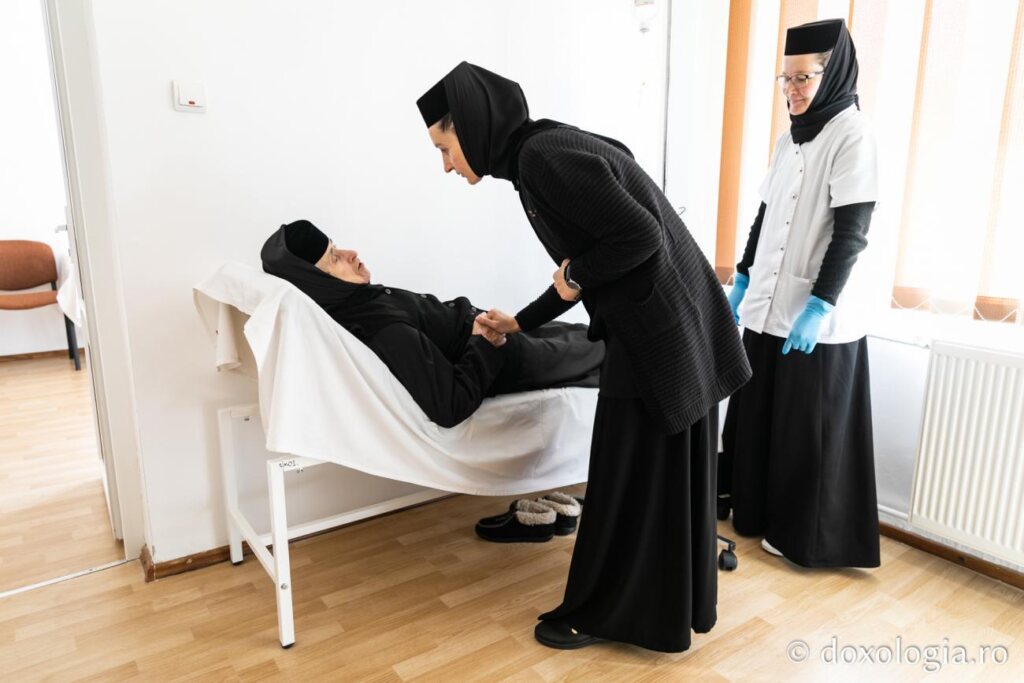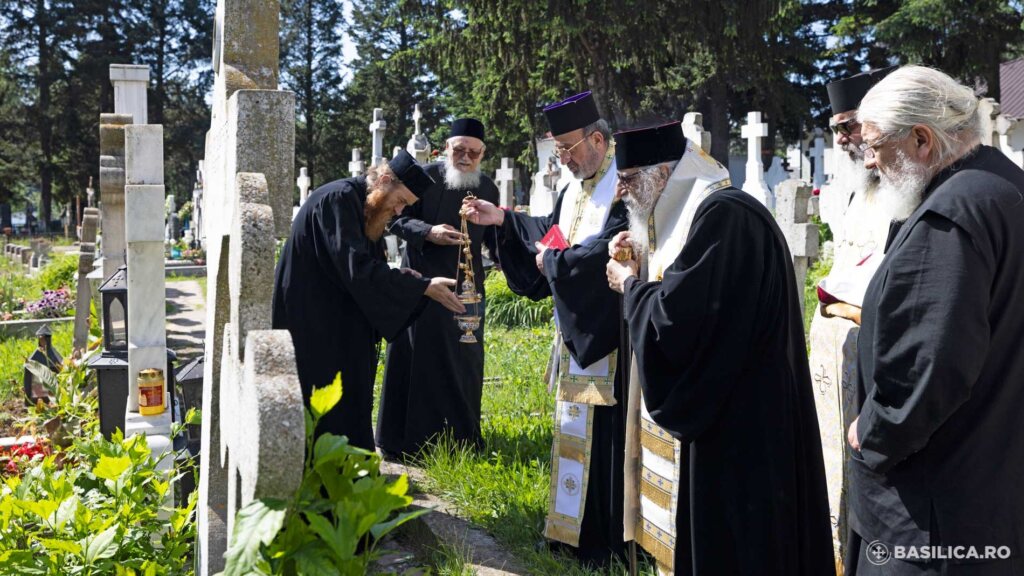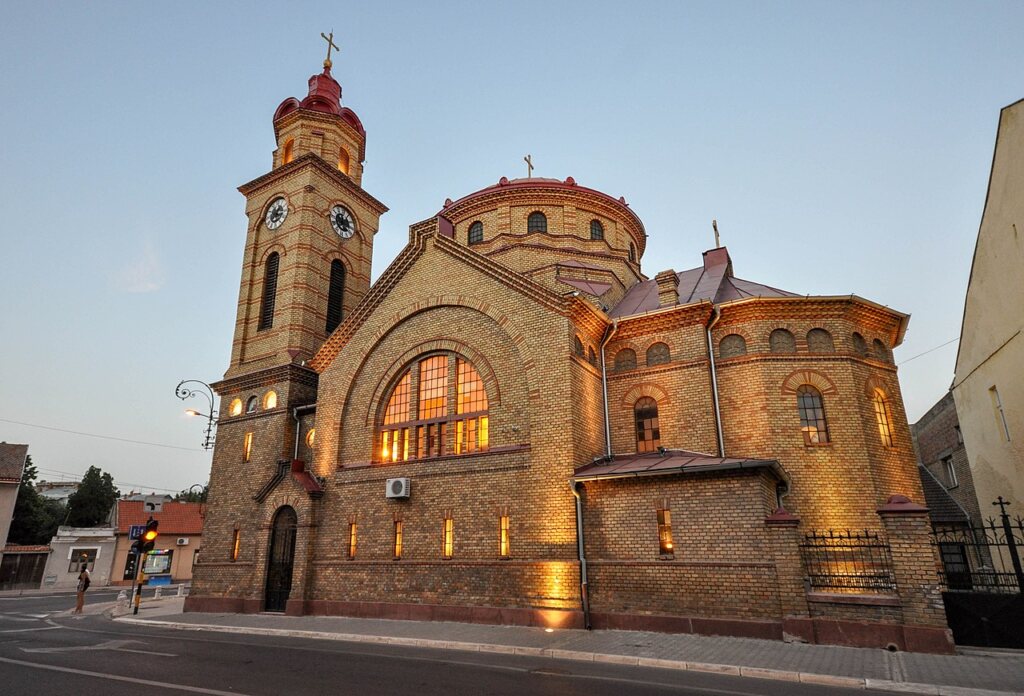Monday, 26 May 2014, the first session of the spring semestral pastoral-missionary Conference of the clergy of the Archdiocese of Bucharest on the theme 2014 – Solemn Eucharistic Year (of the Holy Confession and Holy Communion), was held in “Patriarch Teoctist” Aula Magna of the Patriarchate Palace.
The conference was chaired by His Beatitude Daniel, Patriarch of the Romanian Orthodox Church.
Clergy from the district deaneries 1, 2, 3, 4, 5, and 6 of Bucharest, North Ilfov and South Ilfov, as well as exarchs, abbots, abbesses, priests of charity and military priests of Bucharest and Ilfov county attended.
To start with the event, the Primate of the Romanian Orthodox Church addressed those present the speech entitled the Holy Confession and Holy Communion – Sacraments of the Resurrection of the soul from the spiritual death.
“The Holy Eucharist is a source of good health and holiness, of peace and joy, as well as of sacrificial love and of spiritual power, as help in the fight against the selfish passions, of the bad spirits, injustice and troubles in the world.
But to feel the spiritual power of the Eucharistic Divine Liturgy a proper preparation is needed, much prayer and permanent spiritual vigil, because only so one can avoid superficiality, routine and formalist ritualism in regard to the Holy Communion”, His Beatitude Daniel, Patriarch of Romania said.
Then, members of university teaching staff from the “Patriarch Justinian” Faculty of Theology of Bucharest and from “Metropolitan Nifon” Theological Seminary of Bucharest and from Saint Filofteia Theological Seminary of Pasarea Monastery delivered several lectures.
Rev Lecturer Dr Gheorghe Holbea from “Patriarch Justinian” Faculty of Theology of Bucharest delivered the lecture entitled “Confession as Sacrament of the Church and as act of spiritual revival”.
“Repentance is a process of conversion, or better said, of returning to the true way where man radically changes his existence reporting himself to God not to sin, focusing his attention to future through hope, succeeding in getting rid of the chain by which disappointment kept him blocked in the past. While calling repentance the second baptism, Saint John Climacus points out the fact that this “new life” can be reached only by reporting to God with Whom we must be reconciled through the work of the good things”, Rev Lecturer Dr Gheorghe Holbea said.
Rev Prof Nicolae Motoc from “Saint Filofteia” Theological Seminary from Pasarea Monastery delivered the lecture entitled The Confession Sacrament from a dogmatic-moral and liturgical point of view.
“The Sacrament of the Holy Confession or of Repentance is the saving Sacrament given by God as priceless gift to the Christian righteous faithful, invisibly celebrated in the Church by Jesus Christ, our Lord, and visibly celebrated through the hierarch or the father confessor. It is the sacrament in which after confessing the sins – with repentance – in front of the Icon of the Saviour, the True Celebrant, and of the father confessor as witness, the faithful receive the forgiveness of the sins committed since Baptism or since the latest confession, re-establishing the communion with God and the Church in view of the full union with the Lord through the Holy Eucharist for getting the joy of salvation and of the eternal life” Prof Rev Nicolae Motoc said.
The lecture entitled Innovations and infringements of the liturgical and canonical norms concerning the Sacrament of Confession was delivered by Rev Prof Niculae Andrei from “Metropolitan Nifon” Theological Seminary.
“The Sacrament of Confession is the one that shows the measure of the high dignity to which the spiritual father was called to – namely to forgive the people’s sins and to guide them on the way of salvation. Father Dumitru Staniloae said about the greatness of this service that the most necessary, magnificent and divine is the dignity of leader of the souls to the eternal life. This one is also the only Sacrament that enables the priest to know the heart of the Christian and to recommend him the best way of salvation. But this Sacrament does not work anyhow, but through a visible work, that must be done according to the good order of the Church which says: “Thus, we do them according to the canons and to the decisions of the fathers, if we want to inherit too their grace, and if we want the forgiveness of the sins that we give to be true and valid, accomplishing everything – according to the urge of Saint Paul the Apostle – and to the good order with no deviations and renewals to the service, Rev Prof Niculae Andrei said.
There followed Rev Prof Ionut Barbulescu from “Metropolitan Nifon” Theological Seminary of Bucharest who delivered the lecture entitled “The Holy Eucharist Sacrament from a liturgical point of view”.
“Fellowship with the Body and Blood of the Saviour brightens up His image in us, maintains our communion with Him and helps us on our spiritual way to deification. Therefore, we ought to fulfil often and often the urge of Christ, the Saviour, at the Last Supper: “Do that in my remembrance”, as well as that of Saint Paul the Apostle who says: “Give thanks for everything” (1 Thessalonians 5:18), celebrating and worthily receiving the Holy Eucharist, because this is the most important mission of the priestly service and most important way to reach Christian perfection”, Rev Ionut Barbulescu said.
Then, Rev lecturer Dr Aurel Mihai from the “Patriarch Justinian” Faculty of Theology of Bucharest delivered the lecture entitled: “The Holy Communion as Sacrament, Offering and Updating of the Sacrifice on the Cross”.
“The Sacrament of the Holy Eucharist is the guarantee of our change and of the creation too, as new heaven and earth of the Kingdom of God. Today, when many of our fellow beings pass though much sufferance and troubles, a sincere return and reorientation of our existence to God is a must. Man cannot surpass all by himself the wall of disappointment that sufferance and hardships raise in front of him. Given the circumstances, pain and sorrow grow, and so do the negative work and negative results in the soul, sometimes reaching dread and despair. Individualism and automatism can only enclose us in the isolation of the personal tragedy. It is only through Christ and from Christ that we can find the power and capacity to defeat all temptations”, Rev Lecturer Dr Aurel Mihai said.
Rev Lecturer Dr Silviu Tudose from “Patriarch Justinian” Faculty of Theology of Bucharest delivered the lecture: Innovations and deviations from the liturgical, canonical and pastoral norms of the Holy Eucharist.
“Whenever we speak of the innovations and deviations from the liturgical, canonical and pastoral norms we ought to be aware of the fact that we not only teach other people, but first of all we also have in view the improvement of some situations present in our service, especially when we refer to the Sacrament of the Holy Eucharist. Unfortunately, not knowing the true order brings about the presence of some non-canonical innovations and practices, some of which we shall mention below”, Rev lecturer Dr Silviu Tuodose from “Patriarch Justinian” Faculty of Orthodox Theology of the University of Bucharest said.
The conference session was preceded by the Divine Liturgy and by a Te Deum service celebrated by His Grace Varsanufie Prahoveanul, Archbishop elect of Ramnic, assisted by a group of priests and deacons from the Metropolitan Cathedral of Saint Spiridon the New of Bucharest.
Tuesday, 27 May 2014, 10.00 hours, the clergy of the deaneries of Ploiesti, Campina, Urlati and Valenii de Munte, local exarchs, abbots, abbesses and priests of charity of Prahova county will meet in a conference in Paul Constantinescu Philharmonics hall of Poliesti city.
